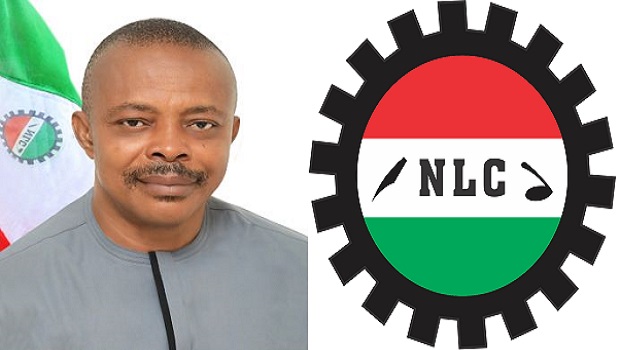
The Nigeria Labour Congress (NLC) has declared a nationwide protest against the recent 50% increase in telecom tariffs, describing the hike as an unfair burden on Nigerians already struggling with rising costs of living.
The protest is set to take place on Tuesday, February 4, 2025, with the possibility of a nationwide boycott of telecom services if the government refuses to reverse its decision.
Speaking at a press conference in Abuja, NLC President Joe Ajaero strongly condemned the tariff adjustment, which was approved by the Nigerian Communications Commission (NCC) despite an initial proposal from telecom operators to increase charges by 100%.
Ajaero criticized the government for prioritizing corporate profits over the welfare of citizens, arguing that telecom services are now a basic necessity rather than a luxury.
“For an average Nigerian worker earning ₦70,000, this increase means spending up to 15% of their salary on telecom services. How can this be justified when the cost of food, fuel, and electricity is already unbearable?” Ajaero asked.
- Woman Leaves Husband after Falling in Love with ChatGPT
- Court Sentences Late Nigerian Gospel Singer Osinachi’s Husband To Death By Hanging
- UTME 2025: Peter Obi Blasts JAMB Over Early Exam Schedule
- JUST IN: Senator Natasha Tenders Apology Letter to Senate President Akpabio
- APC Gives VeryDarkMan Seven Days to Apologise for His Statement on Akpabio’s Condolence Visit to Pope Francis in Rome
- Shocking: See Moment Popular Nigerian TikToker Died During Live Streaming (VIDEO)
Labour Union Demands Reversal
The NLC is calling for an immediate suspension of the tariff hike and a transparent dialogue between stakeholders to find a more sustainable solution. The union has mobilized its affiliates nationwide, urging Nigerians to reject the increase by participating in the protest.
Labour leaders argue that the government approved the tariff hike within a month but took nearly a year to approve an increase in the national minimum wage—a disparity they describe as a betrayal of the working class.
“We cannot allow policies that deepen poverty and inequality. The government must act in the interest of the people, not big corporations,” Ajaero said.
What Happens Next?
If the government refuses to reconsider the tariff hike, the NLC may escalate its actions, including a possible shutdown of telecom services across the country. This could significantly impact businesses, digital communication, and access to essential services.
The Nigerian Communications Commission (NCC), on its part, has justified the tariff increase, citing rising operational costs for telecom operators.
However, critics argue that instead of passing costs to consumers, the government should explore alternative policies to support the telecom sector without worsening economic hardship.
As the February 4 protest approaches, all eyes will be on the government’s response and the level of public participation in what could be a major showdown between labour unions and policymakers.











